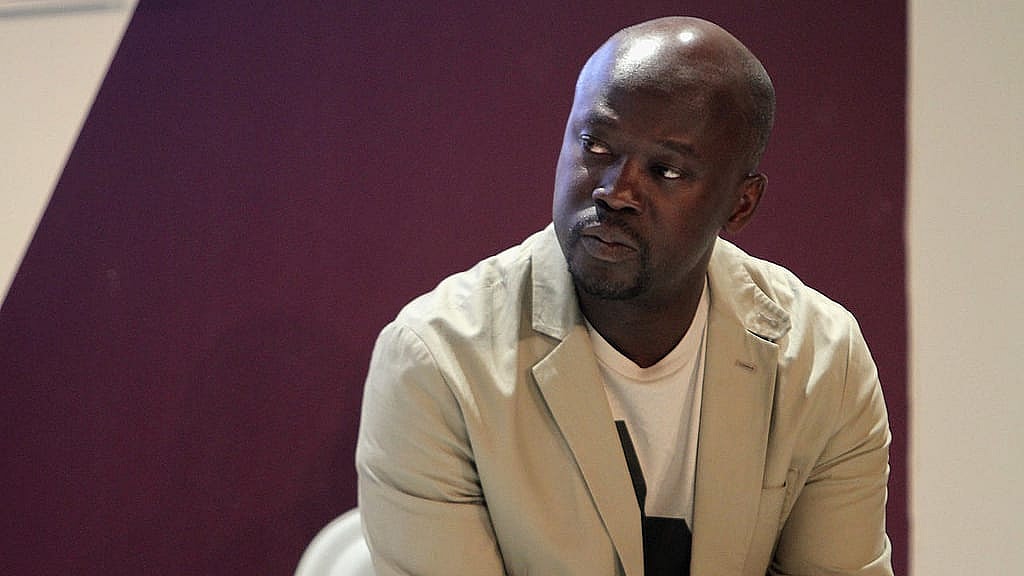Sir David Adjaye, the acclaimed architect of the National Museum of African American History and Culture, has erected architectural masterpieces across several continents. However, new claims from Black women employed by his eponymous firm, Adjaye Associates, allege the architect subjected them to a hostile work environment.
Claims of sexual misconduct, sexual assault, coercion, emotional abuse, and more have been made by three women against Adjaye in particular, as unearthed in a new investigation by the Financial Times. The allegations, which span from 2018 to 2020, have reportedly led the Ghanaian-British architect, who was knighted in 2017, to step down from his firm and resign as an architectural adviser to the mayor of London. His work on the United Kingdom’s Holocaust memorial has also been suspended, according to the New York Times.

According to the Financial Times, the three women share common characteristics: all were Black women in their 40s, single mothers, well-connected, and from influential families. Each also knew Adjaye before joining his firm and had some prior relationship of an intimate nature with the architect. According to the Financial Times, another characteristic the women share is light skin complexions, a factor at least one alleges fueled Adjaye’s vitriol toward her.
Two of the women, who the Financial Times referred to as “Maya” and “Gene,” claim when they joined Adjaye’s newly established, Ghana-based firm in 2018, they were met with missed paychecks, visa insecurities, and worse. Both women also allege numerous instances of sexual coercion – including an incident both women claim left them traumatized and crying together on the floor of Maya’s apartment – and ongoing harassment by Adjaye.
In another incident in 2019 involving Maya, the Financial Times reported that Adjaye sexually assaulted her in a bathroom at an airport in Johannesburg, South Africa.
“I felt so ill, I felt so worthless, like dirt, like nothing,” she told the Financial Times of the assault.
The outlet further reported the woman attempted to raise a grievance with Adjaye’s firm, but her claims weres dismissed.
The third woman, who the newspaper identified as “Dunia,” said her abuse began when she met Adjaye at an industry party in London. She said over the course of the evening, he instructed her to drive them to the Royal Academy of Arts despite it being past closing hours and used his status to gain entry. Once inside, he allegedly pushed Dunia against an alcove and forcibly kissed her.
Nevertheless, she still accepted a role with Adjaye’s firm because of its potential for her career. Over the next few months, she claimed to have experienced a series of controlling and emotionally abusive sexual encounters with the architect, though she refuses to characterize their interactions as a “relationship.” Dunia added she felt pressured to work for Adjaye without pay for a period of time and to comply with his sexual demands because of his influence.
All three accusers told the publication the alleged abuse has “disrupted their careers, left them in precarious financial circumstances, and caused them serious mental distress.”
They further told the publication they felt compelled to come forward about their experiences to prevent other women from experiencing the same and to spotlight the architect’s conduct behind closed doors.
In all three cases, the Financial Times explained reporters worked to corroborate the women’s accounts by interviewing colleagues, family members, and friends they’d confided in. Contemporaneous emails, documents, police statements, and text messages were also reviewed.
A lawyer for Adjaye told the outlet the three women were acting upon “their own grievances” against the architect. In response to questions about the allegations, Adjaye told the Financial Times: “I absolutely reject any claims of sexual misconduct, abuse or criminal wrongdoing. These allegations are untrue, distressing for me and my family, and run counter to everything I stand for.”
He added: “I am ashamed to say that I entered into relationships which though entirely consensual, blurred the boundaries between my professional and personal lives. I am deeply sorry. To restore trust and accountability, I will be immediately seeking professional help in order to learn from these mistakes to ensure that they never happen again.”
If true, these allegations point to behavior occurring not only as Adjaye was building across continents but while publicly advocating for the rights of underrepresented groups in the architecture industry, including women.
In a 2017 interview with Dezeen, an online design magazine, Adjaye said that he found “it exhausting that women are still fighting for gender parity.
“We’re in the 21st century,” he added: “This is such an old story, we should be way past this. I’m embarrassed, as a male.”
TheGrio is FREE on your TV via Apple TV, Amazon Fire, Roku, and Android TV. TheGrio’s Black Podcast Network is free too. Download theGrio mobile apps today! Listen to ‘Writing Black’ with Maiysha Kai.

